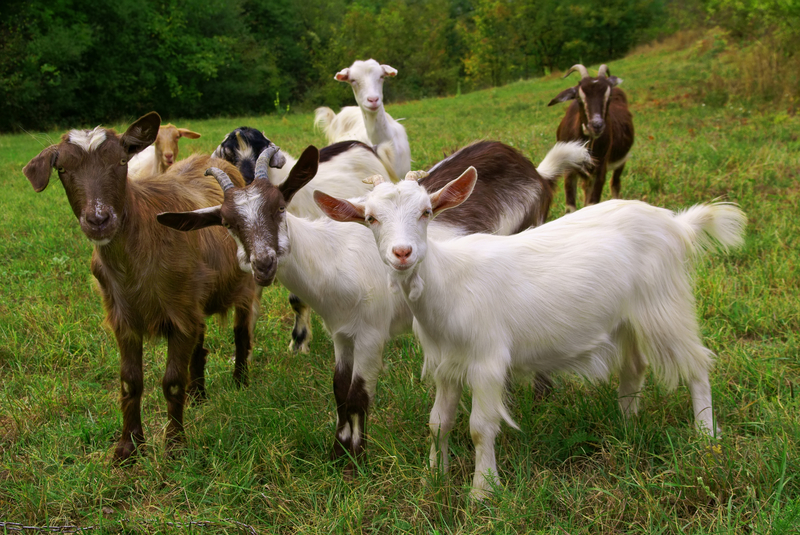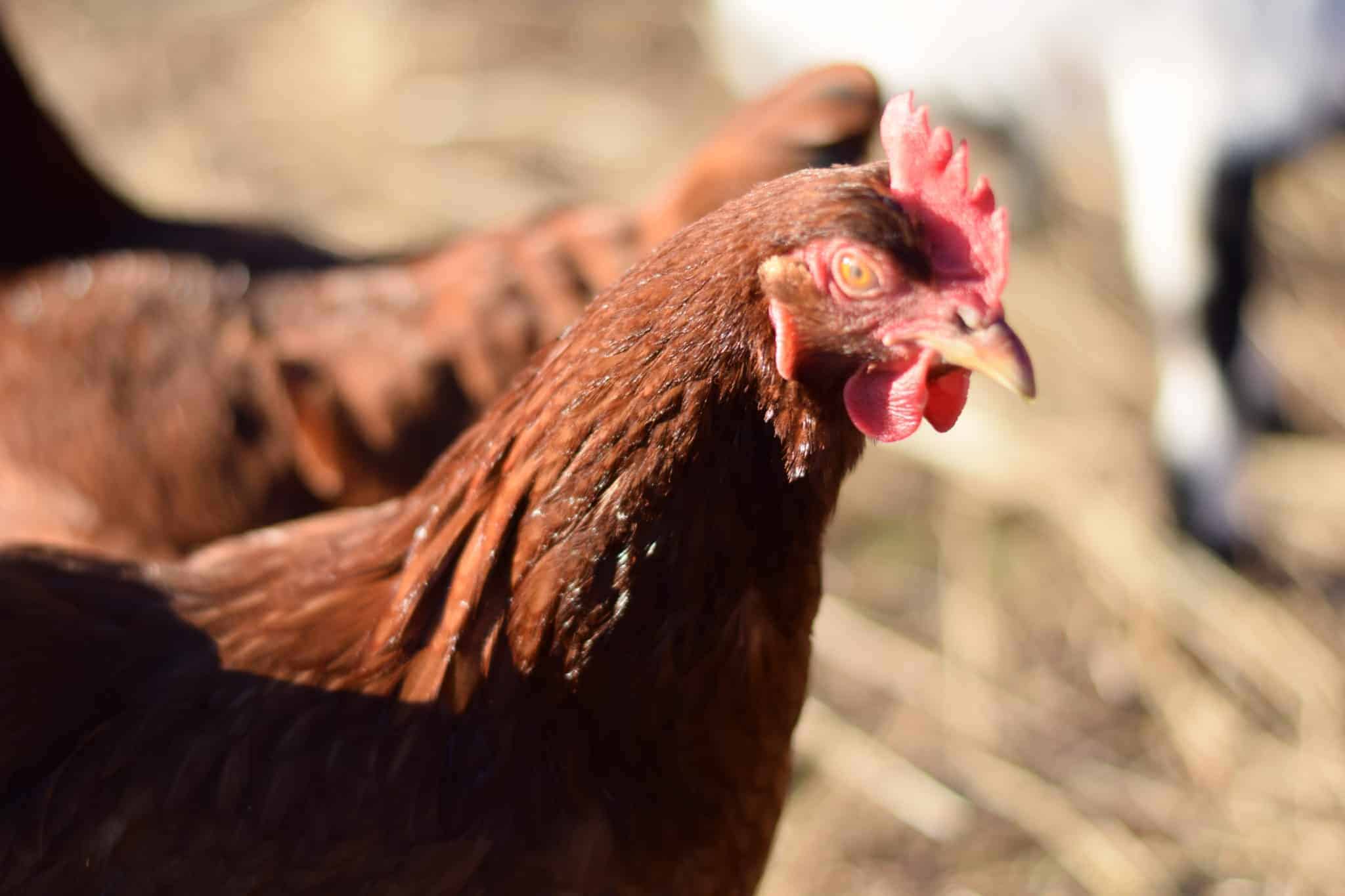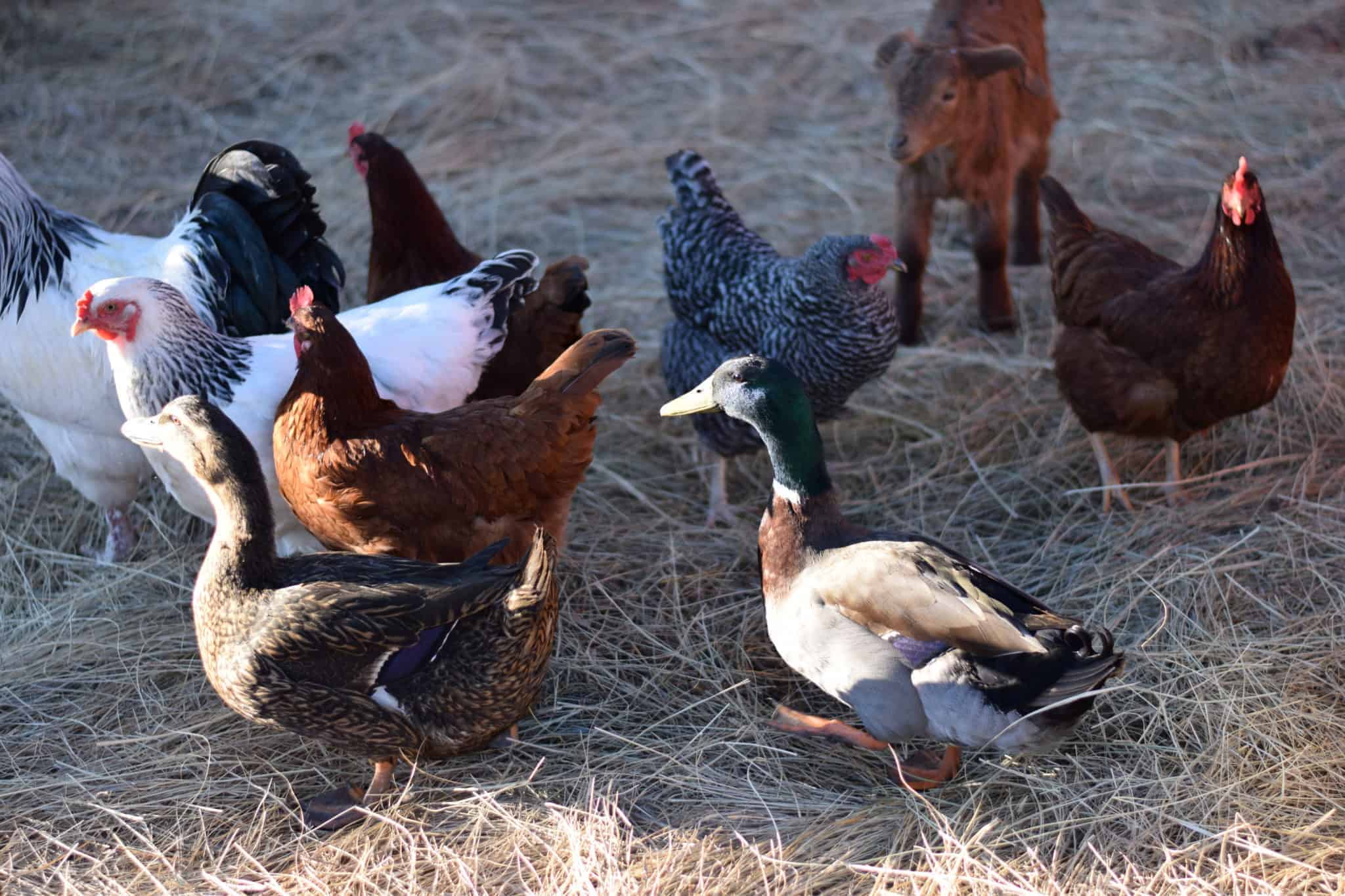
So you’re thinking of adding a goat to your farm or homestead, awesome! They are wonderful animals, with a lot to offer a small or large homestead. Before jumping in and bringing home your new goat, consider the following 10 facts we discovered in our first season of having goats on the homestead.
1. Goats are picky eaters.
On T.V goats are often portrayed as eaters of tin cans and old hats. This is not the case, goats are actually extremely picky eaters. They are not grass grazers either, goats are known as ‘browsers’. They prefer brush areas with lots of weeds, leaves and branches to munch on. While goats will graze on pasture if they have to, given half a chance they will head for your favorite fruit trees/bushes and quickly destroy them. In minutes they can eat a young fruit tree – ask us how we know. Keep this in mind when planning where to graze goats.
2. Goats are sensitive.
Because goats are ruminants (they have four stomachs), their gut is sensitive. This means any changes in diet must be made slowly and gradually to avoid conditions like bloat (which can kill a goat). Be sure to feed a well-balanced diet. You can read more about properly feeding your goat at this link, Feeding your Goat (an excellent resource from Fias Co Farms for any goat owner).
Goats thrive on routine, they like to know when their hay is coming and when milking will be done. Sudden changes in their routine and diet may make for a stressed and unhappy goat.
Goats will need regular hoof care. Once a month you will need to check their feet to make sure they are not becoming over grown, and trim as necessary. They will also need to be wormed regularly and kept up to date on vaccinations. Contact veterinarians in your area to see if they treat goats.
3. Goats need secure fencing.
You’ve probably already heard this one, but it’s worth repeating. Goats will always test a fence, and they will keep testing it until they find a weak spot. Make sure your fence is completely secure and check it often to keep your goats safe from escape and from predators.
You may have also read that electric fencing does not work well for goats, but we use it. Because our goats are used to clear brush and hedges we are constantly moving their grazing pen, the only affordable option for us was to use electric fencing. You can read here, how we trained our goats on an electric fence. This still means we have to check our fence regularly, they will test it and if they know the fence isn’t working they will go through it, (and head straight for those favored fruit trees).
Goats will also ‘lean’ on your fence constantly, regular checks to make sure your fence is withstanding the regular rubbing and leaning is a must.

4. Goats need proper housing.
Goats don’t like to be wet or muddy. Meaning they need a dry place to get out of the wind, rain and snow. They need a draft and damp free environment, especially in colder climates. Depending on the type of goat you choose to bring home they may require different housing. For example, our goats need a warmer shelter to protect their long ears from frostbite during our cold winters.
If you live in a colder climate you will also need a warm and safe shelter if you plan on letting your goats kid out. Goats breed in the fall and kid in the early spring. Our does will give birth in March and April when temperatures can still be below freezing in our area.
5. Goats are social animals, be prepared to get more than one.
Goats are sociable herd animals, they do not do well on their own. A goat who is unhappy being alone may ‘cry’ or ‘yell’ all day long, or may try and escape their enclosure causing harm to themselves. Consider getting more than one goat to keep them happy and stress free. Housing and caring for two goats compared to one is about the same, it is the same amount of work and because goats don’t eat a lot the cost of having two is comparable to one.
6. Know what breed/type of goat you want, decide what you want to use them for.
There are many different types/breed of goats, and not all are breed to do the same thing. If you are wanting to raise your goats for meat make sure you do your research and choose a meat type breed. Same goes for a dairy breed, if your goal is to be able to make cheese, butter and milk your goat. There are some dual purpose breeds that can provide both meat and milk, and are a great choice for small backyard homesteads.
LaMancha, Alpine, Saanan, Nigerian Dwarf and Nubians are all commonly used dairy goats. Boer goats are a popular choice to raise for meat. Another choice is the Kiko and a good dual purpose (milk and meat) is the Nubian. Pygmy and Fainting goats are popular in our area as pets. Be sure to do your research on the type of goat you choose, all have different breed characteristics that will help determine which will be the best fit for your farm.
7. Bucks stink, especially when in rut.
Male goats stink. Their smell is not so bad when they are young, but as they get older the aroma of ‘goat’ can become quite strong. This is especially true in the fall during breeding season when males go into rut. During the mating season bucks start to urinate on themselves, and everything around them. They will pee on their faces and front legs which leaves a smelly sticky mess, but does love it. Keep this in mind when it comes time to decide if you will house your own buck, rent one or buy semen. If you only have a few does, renting a buck for a breeding season may be easier than trying to house one year round. If you are not planning on breeding your goats, consider getting a wether (a castrated male goat), they make excellent pets without the smell.

8. Goats are hilarious and can be very friendly
Not only will your goat give you milk, meat or both depending on the breed you choose, they will provide you with entertainment and companionship. Goats who are raised around people are extremely friendly and curious. They are very playful, we often spend time in the evening watching the goats run around their pen playing with each other.
Along with being friendly and curious they are also extremely intelligent, a goat can quickly figure out how to open a gate or trash can. Keep this in mind when it comes time to install gates and store feed, make sure everything is ‘goat proof’. Goats can also be trained to walk on a lead and pull a cart.
9. Goats are amazing weed eaters.
Goats are very good at clearing brush and hedges. If you need a space cleared of weeds, brush and young trees your goats will gladly do the job, and in record time. We are always impressed how quickly our girls clear a fence line of weeds and shrubs. One of the main reasons we bought our goats was to use them as organic weed eaters, they even clear the poison parsnips that grow everywhere in our area. They are so good at clearing brush their pasture needs to be moved regularly to make sure they have enough to eat.
10. Goats can be loud.
A lonely goat is a loud goat, an unhappy goat is a loud goat, a goat in heat is a loud goat, the list goes on. If there are any changes in their schedule a goat will make their displeasure known. Some breeds are louder than others, people claim the Nubian breed is especially loud. In our experience as long as they are happy and have a companion the Nubian’s aren’t overly vocal. The only exception to this is when our buck was in rut, then he was loud until he was able to breed our does.
Thankfully we have very understanding neighbors, but if you have close neighbors you may want to make sure your goats are not obnoxiously vocal.

This is our first season with our Nubian goats and it has been a wonderful learning experience. We are excited for spring when we will add to our herd with kids from our does.
Do you have goats on your farm or homestead? What lessons have they taught you?
This post may contain affiliate links. If you choose to purchase products through our links we may earn a small commission, which helps us continue this site. When purchasing through our affiliate links you will never pay more. Thank you for your support!































